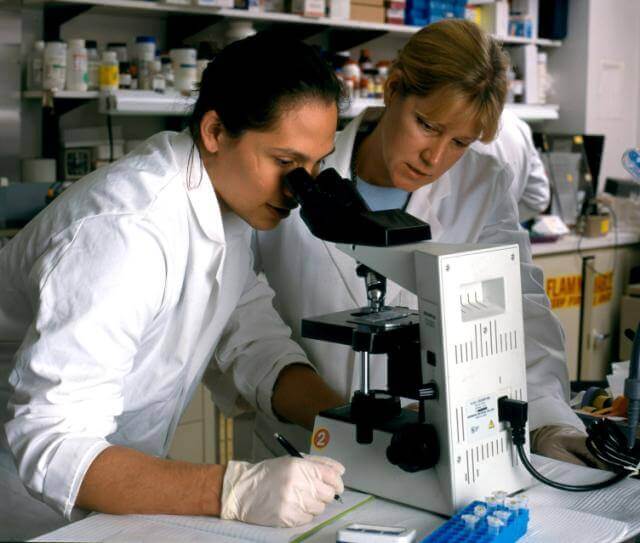Ashley BennettGHTC
Ashley Bennett is a Policy and Advocacy Officer at GHTC.
Last week, we reported on exciting policy language included in the Senate Department of Defense appropriations legislation, and earlier this summer, the House and Senate State and Foreign Operations bills also included recognition of the role that new technologies could play in advancing global health. Today we have even more good news to report: The Senate Appropriations Labor and Health and Human Services (LHHS) Subcommittee released its own fiscal year (FY) 2015 appropriations legislation, after a lengthy internal debate on domestic health concerns.

Senate calls for increase in NIH funding; still lags behind need
The legislation covers funding and policy issues for several key global health research programs at the National Institutes of Health (NIH), the Centers for Disease Control and Prevention (CDC), and the Office of Global Affairs at the Department of Health and Human Services (HHS). At GHTC we’ve voiced concern that funding for NIH has lagged behind both inflation and the research program needs of the agency. Last week, we learned that the Senate LHHS appropriations subcommittee has appropriated $30.6 billion for NIH—which represents an increase of $606 million over FY 2014. This is a welcome increase; however, as the subcommittee noted in its report introduction, NIH’s funding is still unacceptably low, even with this improvement.
Report language supports global health programming at NIH
Within NIH, several key research centers were funded at reasonable levels, including the National Center for Advancing Translational Sciences (NCATS) and the National Institute for Allergy and Infectious Disease. The committee expressed its support for continued funding for neglected tropical diseases (NTDs), microbicides, and antibiotic research, as well as government-wide research collaboration, among other priorities. In an exciting move, the committee also included NCATS report language requesting that NCATS include a report in its FY 2016 budget justification “on initiatives targeted at neglected diseases and global health conditions, with specific focus on global health technologies and devices.” Global health is an essential part of NCATS’s mandate, and this language will ensure that it is prioritized within the program.
CDC global health programming receives increased funding in bill
The legislation also provides strong support for research at the CDC’s global health programs. Under the bill, the National Center for Emerging Zoonotic and Infectious Diseases (NCEZID) would receive an increase over FY 2014 funding levels. In addition, the subcommittee’s report mentions the Chikungunya outbreak in the Caribbean and the United States and encourages coordination between NCEZID and the CDC’s Center for Global Health on global health security efforts. Speaking of the Center for Global Health, this program received a rare increase in the Senate bill over even the President’s FY 2015 budget request. This is likely a result of support for the new Global Health Security Agenda. Most notable was the inclusion of a new line item in the Center’s budget for “Global Health Protection.” The bill also included positive language on CDC’s work on malaria and NTDs and provided continued funding for the National Public Health Institutes—an epidemiology and research capacity-building program in select countries.
House LHHS bill has not been released; continuing resolution likely
The House Appropriations LHHS Subcommittee has not released a bill for FY 2015 and may not do so at all. As it looks more likely that a continuing resolution will be necessary to continue uninterrupted government funding for NIH, HHS, and CDC global health R&D programs, Congress should work to come to an agreement that robustly supports funding and smart policy improvements for these programs.
Ashley Bennett is GHTC’s policy officer.